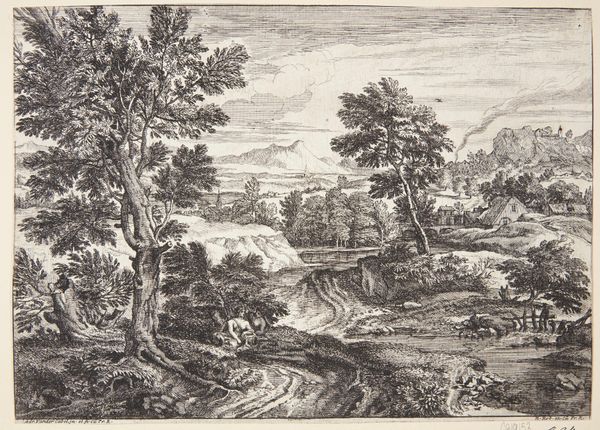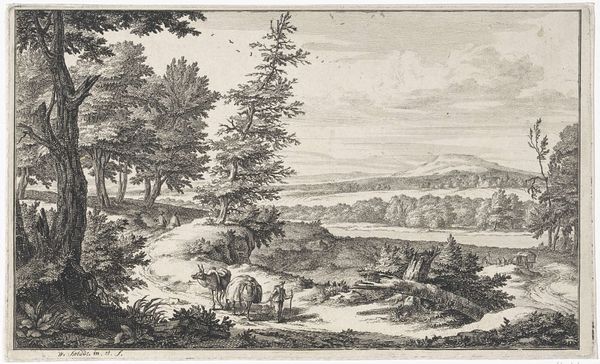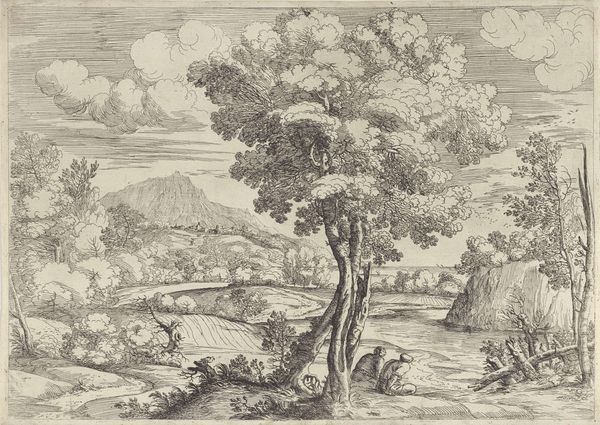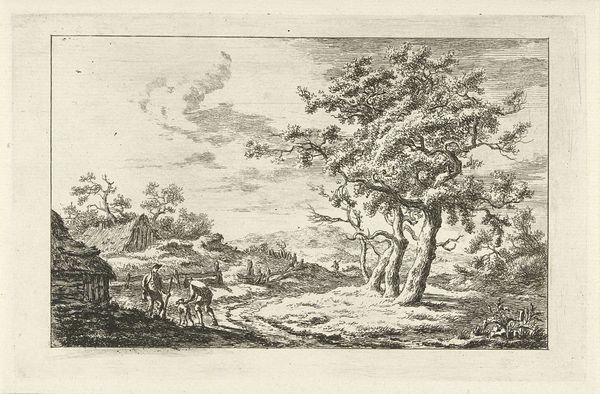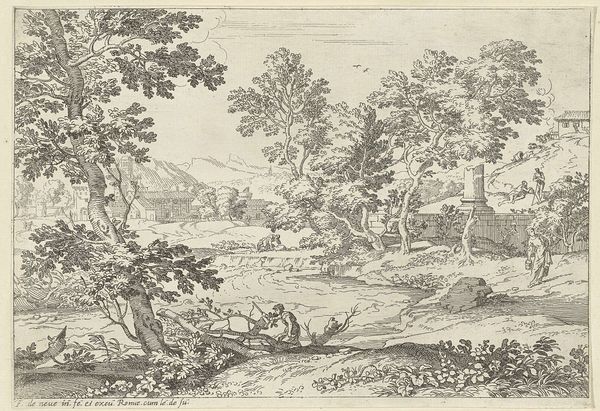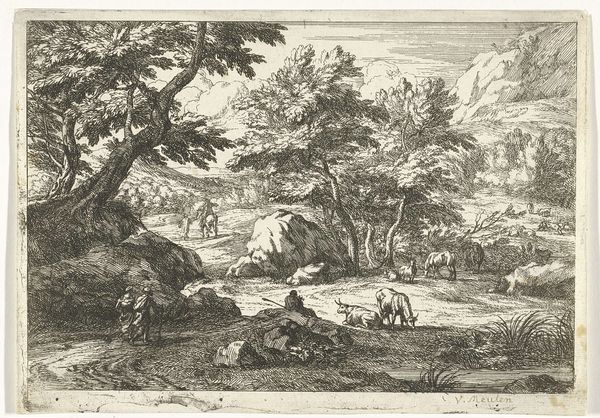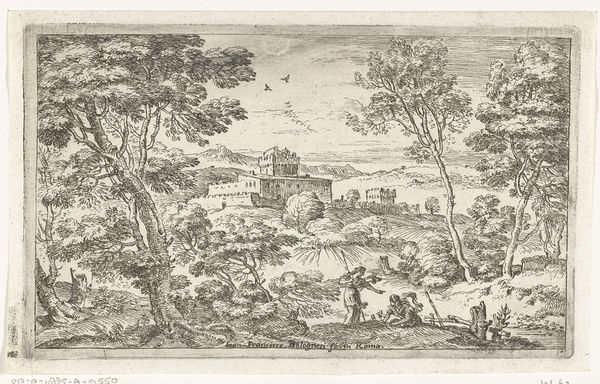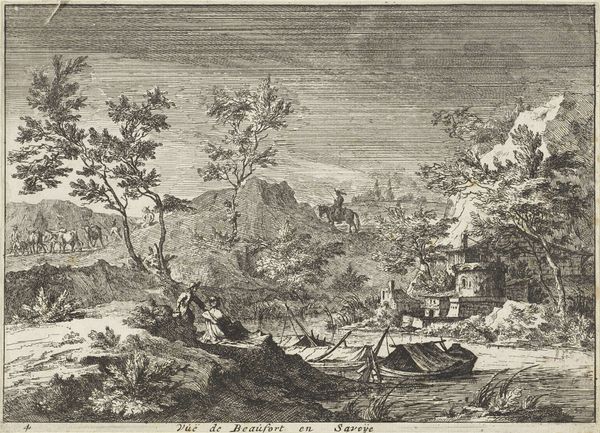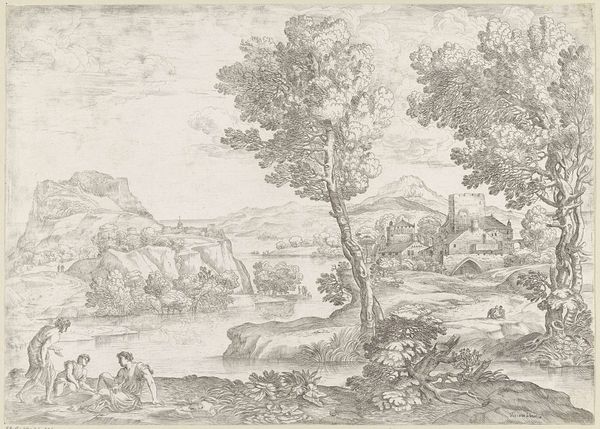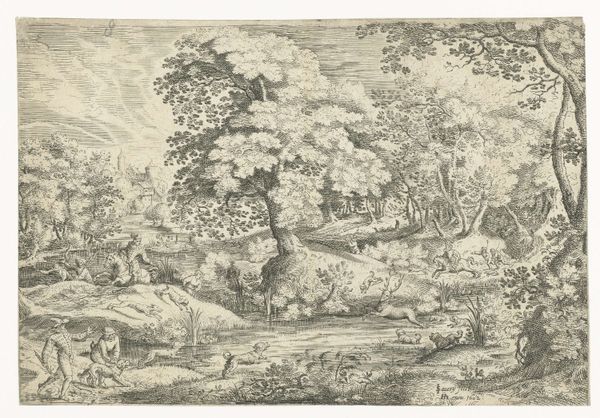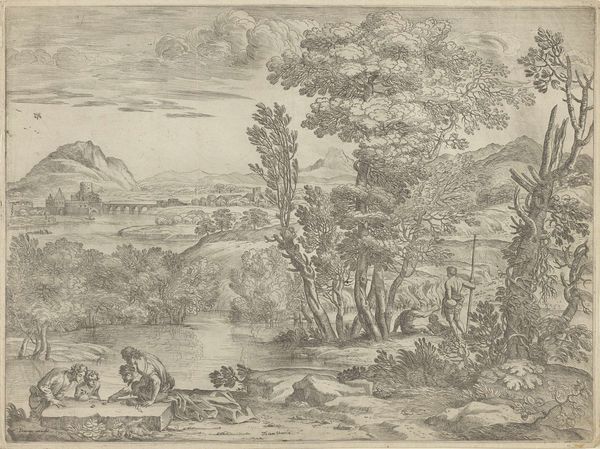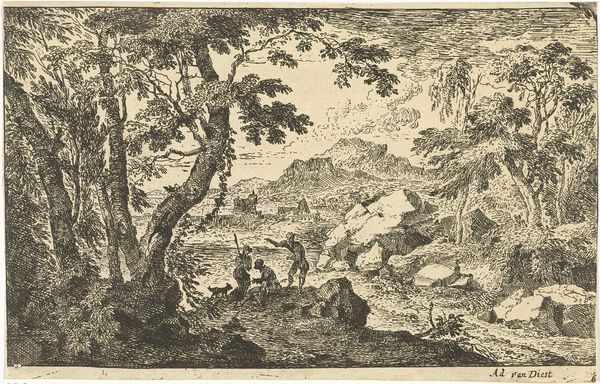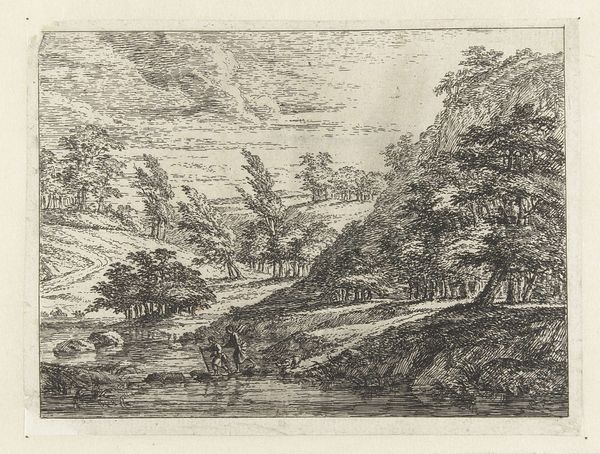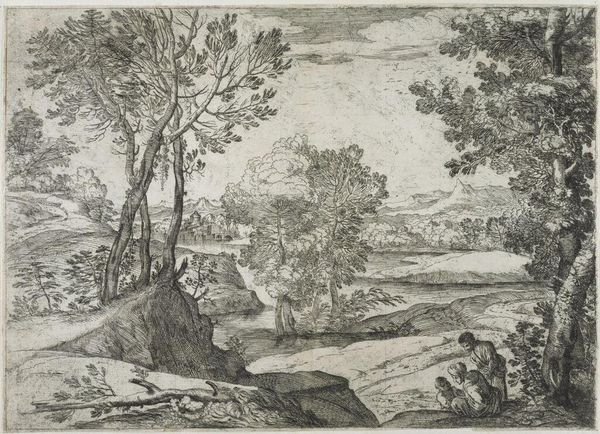
print, engraving
#
ink drawing
#
pen drawing
# print
#
landscape
#
figuration
#
line
#
history-painting
#
northern-renaissance
#
engraving
Dimensions: height 232 mm, width 308 mm
Copyright: Rijks Museum: Open Domain
Hieronymus Cock etched "The Good Samaritan" on a copper plate, capturing a timeless scene of compassion. At its heart, the Good Samaritan tends to the wounded traveler, an emblem of selfless charity rooted deeply in Christian ethics. Note how this act of kindness echoes through art history. Consider its parallels to ancient Roman depictions of merciful acts, or even earlier Egyptian reliefs showing pharaohs caring for their subjects. The motif of offering aid transcends cultures, reflecting a universal human impulse. But observe how the meaning subtly shifts. In medieval art, such scenes were didactic, reinforcing religious doctrine. Later, in the Renaissance, they became vehicles for exploring humanism, emphasizing individual moral responsibility. This evolution reveals our collective, subconscious yearning for empathy. The composition itself, with the Samaritan kneeling, evokes a powerful emotional response. See how this symbol continually resurfaces, evolving with each telling, bearing witness to our enduring quest for understanding and kindness.
Comments
No comments
Be the first to comment and join the conversation on the ultimate creative platform.
